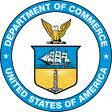United States Department of Commerce

United States Department of Commerce: Staff Publications
Date of this Version
2012
Citation
Journal of Environmental Economics and Management 64 (2012) 16–30; doi: 10.1016/j.jeem.2012.03.003
Abstract
We investigate the behavior of farmers who share an underground aquifer. In the case where seepage may occur the resource is nonexclusive, giving rise to a spatial externality whereby pumping by one user affects others nearby. Theoretically, these externalities are potentially important causes of welfare loss. Using a unique spatial data set of groundwater users in western Kansas, we are able to empirically measure the physical and behavioral effects of groundwater pumping by neighbors. To address the simultaneity of neighbors’ pumping, we use the neighbors’ permitted water allocation as an instrument for their pumping. We estimate that 2.5% of the total groundwater extracted each year in western Kansas is over-extraction due to the effects of spatial externalities. Individuals who own multiple wells internalize their own externality by trading off pumping at one well for pumping at another.

